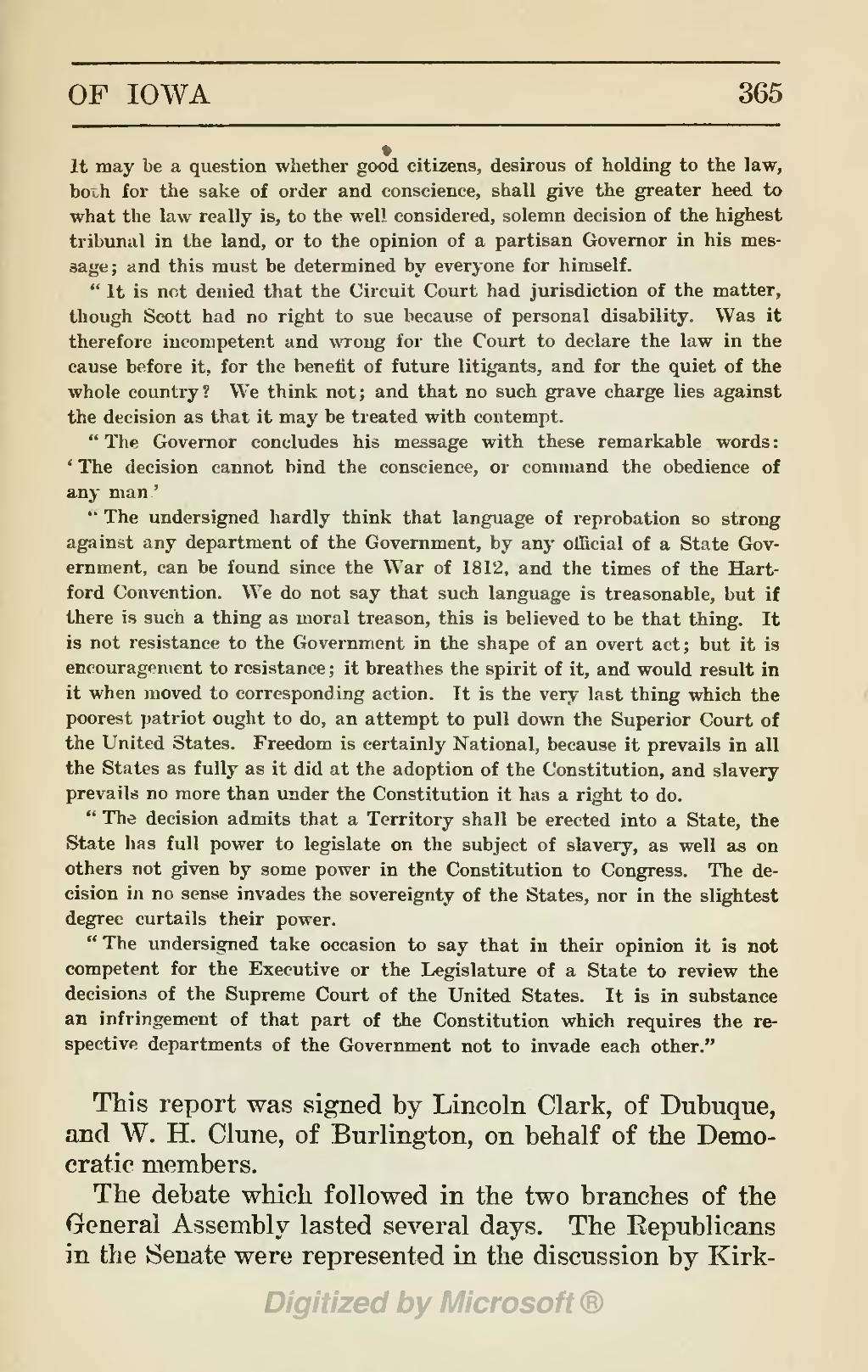| OF IOWA | 365 |
It may be a question whether good citizens, desirous of holding to the law, both for the sake of order and conscience, shall give the greater heed to what the law really is, to the well considered, solemn decision of the highest tribunal in the land, or to the opinion of a partisan Governor in his message; and this must be determined by everyone for himself.
“It is not denied that the Circuit Court had jurisdiction of the matter, though Scott had no right to sue because of personal disability. Was it therefore incompetent and wrong for the Court to declare the law in the cause before it, for the benefit of future litigants, and for the quiet of the whole country? We think not; and that no such grave charge lies against the decision as that it may be treated with contempt.
“The Governor concludes his message with these remarkable words: ‘The decision cannot bind the conscience, or command the obedience of any man.’
“The undersigned hardly think that language of reprobation so strong against any department of the Government, by any official of a State Government, can be found since the War of 1812, and the times of the Hartford Convention. We do not say that such language is treasonable, but if there is such a thing as moral treason, this is believed to be that thing. It is not resistance to the Government in the shape of an overt act; but it is encouragement to resistance; it breathes the spirit of it, and would result in it when moved to corresponding action. It is the very last thing which the poorest patriot ought to do, an attempt to pull down the Superior Court of the United States. Freedom is certainly National, because it prevails in all the States as fully as it did at the adoption of the Constitution, and slavery prevails no more than under the Constitution it has a right to do.
“The decision admits that a Territory shall be erected into a State, the State has full power to legislate on the subject of slavery, as well as on others not given by some power in the Constitution to Congress. The decision in no sense invades the sovereignty of the States, nor in the slightest degree curtails their power.
“The undersigned take occasion to say that in their opinion it is not competent for the Executive or the Legislature of a State to review the decisions of the Supreme Court of the United States. It is in substance an infringement of that part of the Constitution which requires the respective departments of the Government not to invade each other.”This report was signed by Lincoln Clark, of Dubuque, and W. H. Clune, of Burlington, on behalf of the Democratic members.
The debate which followed in the two branches of the General Assembly lasted several days. The Republicans in the Senate were represented in the discussion by Kirk-
